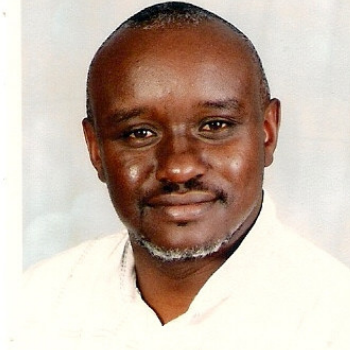FROM ACCIDENT TO DESTINY: LEARNING THROUGH THE AEN
So I have seen expanded scope, expanded network and, an active body of champions promoting evidence use. It has been an exponential growth for me after joining the AEN reference group.
by James Kariuki
For James Kariuki joining the AEN was “a total accident.” It all came about when in 2016, while attending an event in Uganda, a colleague forward him an article with a reference to the AEN. Out of curiosity he went to the website and joined. His experience working as a health systems and informatics expert at the Kenya Medical Research Institute, in line with his passion of promoting evidence at grassroots level, has meant that he has enjoyed contributing his experiences to the AEN as a member of the reference group.
Discovering the AEN and its regional reach led to James changing course in his own plan to start a network, as he explains:
"Before joining the AEN we had started a small network in the East African health community. We were looking for ways to promote research evidence in government in various countries in East Africa. And I thought why don’t we scale up these activities to the African Union to have a Pan-African outlook? We were at an exploratory stage then. After 2016 and joining the AEN, I changed the perspective and said look we can join the AEN and join this Pan-African outlook in terms of promoting locally generated evidence to African society (sic) problems. So I have seen expanded scope, expanded network and, an active body of champions promoting evidence use. It has been an exponential growth for me after joining the AEN reference group."
James cannot over-emphasize the benefits of having met
"....likeminded colleagues who believe in using locally available research evidence to get solutions to ‘the African problem’ be it in health, education, agriculture…We needed to shift from getting most of our evidence from Europe or the Americas and change to locally generated evidence. It is a mindset, the meeting of colleagues, and the vision that they shared. This is a critical moment for the AEN."
One of the many ways in which to learn about how others are finding local solutions, in other words, “narrowing the know- do gap” has been the web-based platform that the AEN provides. This facilitates learning about innovative ways to promote evidence use in local settings, but also learning about our mistakes and how to improve.
In James’s words:
“This will help us take charge of our destiny”.
